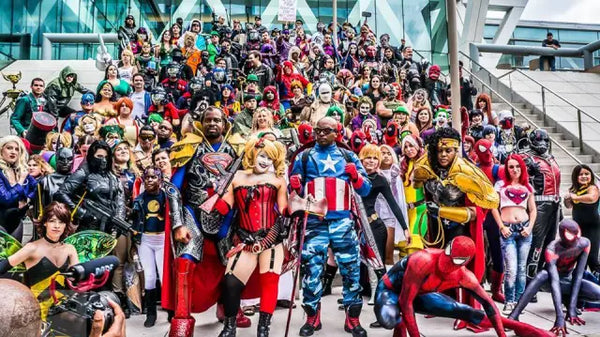In the world of entertainment, conventions, and costume events, the terms "cosplay" and "costume" are often used interchangeably. However, these two concepts have notable differences, both in intent and execution. Whether you're a geek culture enthusiast or a novice, understanding the distinction between the two practices is essential. Here's a comprehensive guide to clarifying the difference between cosplay and costume.
What is a disguise?
A disguise A costume is a costume worn during specific events such as Halloween, costume parties, or carnivals. The main purpose of a costume is to temporarily change one's appearance to embody a particular character or theme. Costumes are often generic, readily available in stores, and do not necessarily require a large investment of time or money. They can represent characters from movies, books, professions, or imaginary creatures.
Characteristics of a disguise:
- Accessibility : Often purchased in stores or online, a costume is usually ready-made and available in various sizes.
- Simplicity : Costumes are designed to be easy to wear, often with simplified details. They are generally less detailed and less expensive than cosplay costumes.
- Occasions : They are worn for events like Halloween, costume parties, or school performances.
- Aim : The main purpose of a disguise is to have fun, to change your appearance temporarily, without trying to imitate a character in a precise way.

What is cosplay?
The term cosplay is a contraction of "costume" and "play," and refers to the art of embodying a specific character, often from pop culture, such as manga, anime, video games, or science fiction films. Cosplay goes far beyond simply wearing a costume: it is a true artistic performance. Cosplayers strive not only to faithfully reproduce the costumes, but also to capture the attitude, personality, and gestures of the character they are portraying.
Cosplay Features:
- Precision Cosplay requires attention to detail. Costumes are often custom-made by the cosplayers themselves or commissioned from specialized artisans. Every element of the costume, from makeup to accessories, is designed to faithfully reflect the original character.
- Creativity and craftsmanship : Many cosplayers create their own costumes, which can require skills in sewing, modeling, painting, and design. It's a process that can take several weeks or even months.
- Commitment : In addition to the costume, cosplay often includes imitating the character's behavior and voice. It is a form of role-playing where the individual fully enters into the character's skin.
- Events : Cosplays are often presented at conventions such as Japan Expo, Comic-Con, or cosplay competitions where the authenticity and quality of the costume are judged.
- Aim : The goal of cosplay is to pay homage to a character and share this passion with a community of fans. There is a strong social dimension, with fan meetups, photoshoots, and sometimes even competitions.

The main differences between cosplay and disguise
- Level of detail : Cosplay emphasizes accuracy and character fidelity, whereas a costume is often simpler and less detailed.
- Commitment : A cosplayer immerses himself completely in his character, whereas a costume does not require such a level of investment.
- Occasions : Costumes are popular at events like Halloween or children's parties, while cosplay is associated with geek conventions and events.
- Creation : Cosplays are often handmade and can involve a lot of work, whereas costumes are mostly purchased ready-made.
Conclusion
In short, if you're looking to have fun at a costume party or for an event like Halloween, a costume will be perfect. On the other hand, if you're a pop culture fan and want to embody a character in a faithful and committed way, the cosplay is the ideal option. The main difference between these two practices lies in the level of detail, dedication, and creativity you are willing to invest in your transformation.
Questions :


0 comments